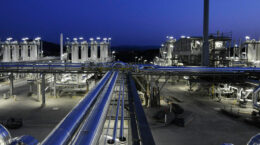
Manganese-rich Nickel Cobalt Manganese Oxide materials (Mn-rich NCM) is a market-leading portfolio for Cobalt (Co) free cathode active materials (CAM). With significant reduction from the consumption of Cobalt (zero) and Nickel (content down to 30%, approx.), the product offers 10-20% lower $/kWh cost in a battery cell while achieving a volumetric energy-density close to high Nickel CAM (typically the energy-density level of NCM-811).
This portfolio offers highly competitive cost-performance balance allowing to serve more electric vehicle (EV) market segments. At the same time, it is more sustainable.
Currently the market for EVs is fragmented into three major segments differing to cost and performance:
① Entry-level Segment for the lowest battery cost
② Volume Segment for a good balance of battery performance and cost
③ Performance Segment in favor of maximum range or power of the battery
Metal(s) is a dominant cost driver for CAM (e. g. metal materials determine around 60% of NCM 811 cell cost averagely) referring to the high demands and their scarcity. Among Nickel (Ni), Cobalt (Co) and Manganese (Mn), Mn is abundant and widely available in the world with much lower price comparing Ni and Co.

BASF’s high-energy Manganese-rich materials with the low Nickel content, zero Cobalt and volumetric energy density on par with high-Ni materials is offering a very good cost-performance balanced solution for the Volume Segment and even might be applicable in the Entry-level Segment. The elimination of Co and reduction of Ni not only significantly decrease the cost comparing Hi-Ni NCM, but also mitigate the impact of their price fluctuations and enhance the metal sustainability footprint as both metals are substituted with vastly available and cheap Mn.
As the material has to be managed differently in the cell, BASF currently works very closely with selected customers to jointly develop cells based on Manganese-rich NCM products. They are already manufactured on a multi-ton scale. This progress in material development will be further accelerated, thus broadening the use of such products by customers.

BASF has been working consistently on this over many years. Our researchers have done a tremendous job to significantly improve cycle life and energy densities beyond most optimistic forecasts. Mn-rich cathode materials, will become a low-cost recyclable alternative to LFP and other mid- and higher-nickel products.





